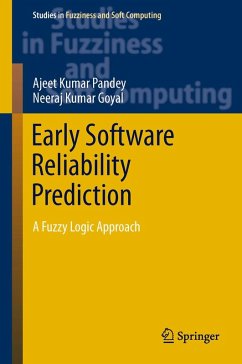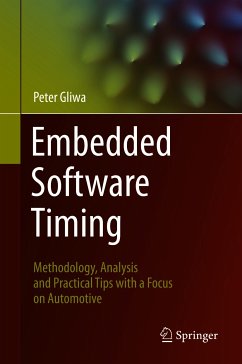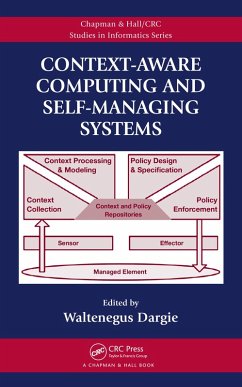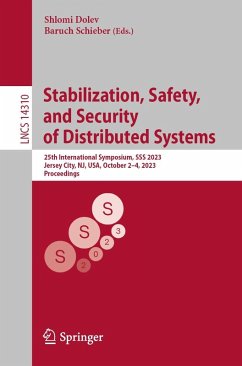
Architecture-Aware Online Failure Prediction for Software Systems (eBook, PDF)
Sofort per Download lieferbar
Statt: 17,99 €**
6,99 €
inkl. MwSt. und vom Verlag festgesetzt.
**Preis der gedruckten Ausgabe (Broschiertes Buch)
Weitere Ausgaben:

PAYBACK Punkte
0 °P sammeln!
Failures at runtime in complex software systems are inevitable because these systems usually contain a large number of components. Having all components working perfectly at the same time is, if at all possible, very difficult. Hardware components can fail and software components can still have hidden faults waiting to be triggered at runtime and cause the system to fail. This dissertation proposes an architecture-aware online failure prediction approach, called Hora. The Hora approach improves online failure prediction by combining the results of failure prediction with the architectural know...
Failures at runtime in complex software systems are inevitable because these systems usually contain a large number of components. Having all components working perfectly at the same time is, if at all possible, very difficult. Hardware components can fail and software components can still have hidden faults waiting to be triggered at runtime and cause the system to fail. This dissertation proposes an architecture-aware online failure prediction approach, called Hora. The Hora approach improves online failure prediction by combining the results of failure prediction with the architectural knowledge about the system. The task of failure prediction is split into predicting the failure of each individual component, in contrast to predicting the whole system failure. Suitable prediction techniques can be employed for different types of components. The architectural knowledge is used to deduce the dependencies between components which can reflect how a failure of one component can affect the others. The failure prediction and the component dependencies are combined into one model which employs Bayesian network theory to represent failure propagation. The combined model is continuously updated at runtime and makes predictions for individual components, as well as inferring their effects on other components and the whole system.
Dieser Download kann aus rechtlichen Gründen nur mit Rechnungsadresse in A, B, BG, CY, CZ, D, DK, EW, E, FIN, F, GR, H, IRL, I, LT, L, LR, M, NL, PL, P, R, S, SLO, SK ausgeliefert werden.













